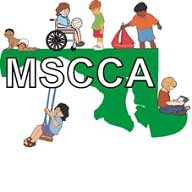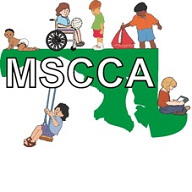Legislative Info from Green & Healthy Homes Initiative:
Baltimore, MD – GHHI achieved its primary state legislative goal of lowering the blood lead action level in Maryland for environmental investigation of homes and medical case management for children. The passage of HB1233 is a tremendous victory by requiring that we take action sooner to investigate and remediate lead hazards in homes when children are exposed to lead. We are also excited to have the state support, through the passage of HB1160, the implementation of the groundbreaking Breathe Easy East Baltimore project that will reduce asthma episodes at the population level in East Baltimore’s most at risk neighborhoods.
These two major Bills will give our children a better opportunity to come to school ready to learn, improve their school attendance and performance and be able to thrive! Without all of your consistent support and voices we could not have made this significant progress towards eliminating childhood lead poisoning and reducing asthma episodes in Maryland.
We thank Delegates Robbyn Lewis and Marvin Holmes for sponsoring HB1233 lead poisoning prevention legislation and Delegate Brooke Lierman for sponsoring HB1160 to support preventive asthma program services!
HB1233: Maryland Healthy Children Act – Reduction of Lead Risk in Housing – Elevated Blood Lead Levels
Delegate Lewis lead the charge for HB1233 which will lower the blood lead action level for: (1) medical case management provided to children and (2) mandatory environmental investigations of rental and owner-occupied properties in Maryland. This is a vital component of our comprehensive prevention strategy and mandates that Maryland’s blood lead action level be lowered from 10 µg/dl to the CDC lead reference level (currently 5 µg/dl).
HB1233 will have numerous prevention benefits including:
* Over 1,200 more children annually will have their homes inspected by MDE and local health departments to identify lead hazards that are causing the child’s elevated blood lead levels;
* Triggers environmental investigation and required lead hazard remediation at 5 µg/dl rather than waiting until a child has higher levels of lead poisoning or until a sibling is also lead poisoned in the home;
* Allows for Maryland’s blood lead action level to be lowered below 5 µg/dl in the future if the CDC lowers its blood lead reference level;
* Re-establishes Maryland as a best practices leader in lead poisoning prevention by adopting the CDC reference level as its action level.
HB1160: Public Health – Breathe Easy Pilot Program
The Breathe Easy East (BEE) Baltimore Project is a visionary partnership between GHHI, Living Classrooms, Johns Hopkins University Department of Pediatrics and Schools of Medicine and Public Health, and the Baltimore City Health Department and Public Schools. Asthma related ED visits for children in Baltimore are more than double the statewide rate and asthma related hospitalization rates for adults are 3.3 times that of Maryland as a whole.
The goal of the project is to reduce pediatric emergency department visits and hospitalizations for asthma in the Target Investment Zone in East Baltimore by 30% and produce improved school attendance and school performance, increased housing stability and other social benefits. The BEE Project will reduce asthma episodes through broad community education and direct services to 1,500 children/families including: 1) home-based asthma trigger reduction interventions; 2) in-home resident education; and 3) improved clinical care management and coordination.
Delegate Lierman advocated for the passage of HB1160 that provides $100,000 in annual project support for preventive asthma services during the five year BEE pilot period.
HB1253: Drinking Water Outlets in School Buildings – Elevated Level of Lead and Grant Programs
We thank Delegate Jared Solomon and Senator Cory McCray for sponsoring Bills to improve the safety of drinking water in schools. HB1253 amends the Healthy School Facility Fund for schools to allow its grant funding to be used for replacement of drinking water outlets and other remedial measures. $30 million per year is available in the Fund. HB1253 also creates a robust reporting requirement for any school drinking water outlet test samples that are elevated above 5 ppb by mandating the public reporting of any such elevated samples. This reporting increases transparency for parents and state and local agencies by better identifying schools with dangerous leaded fixtures that need remediation. We were disappointed that Delegate Solomon and Senator McCray’s Bill was amended and weakened in the last hours of the General Assembly on Monday to remove the mandatory lowering of the action level for lead in water in school drinking water outlets. However, we recognize that it sometimes takes more than one year to pass a policy change of this magnitude and we will advance the portions of the Bill that were not adopted this year in the 2020 session.
On behalf of Maryland’s children, we thank our legislative leaders as well as all of our supporters and partners this session who worked for the passage of such significant lead poisoning and asthma prevention legislation. We will continue to work to protect children where they learn so that they can learn!
About the Green & Healthy Homes Initiative
The Green & Healthy Homes Initiative (GHHI) is a national nonprofit dedicated to breaking the link between unhealthy housing and unhealthy families. GHHI provides evidence-based direct services and technical assistance to create healthy, safe, and energy efficient homes. GHHI’s end goal is to achieve health, economic, and social outcomes for low-income families while reducing public and private health care costs. To learn more, please visit ghhi.org and follow us @HealthyHousing


 and then
and then